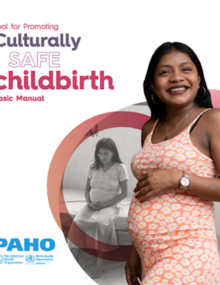Recognizing the different realities of women (including their values and cultural traditions) is a good starting point for promoting joint efforts among relevant actors to develop health policies that are inclusive, geared to user satisfaction, and based on appropriate and compassionate quality care. Only then can maternal health outcomes, particularly those associated with maternal mortality, be improved without any discrimination. It is therefore necessary for health workers who care for indigenous women during the reproductive process to be able to address their different situations and specific health problems (associated in part with cultural differences) and provide timely, adequate responses. This will help reduce the inequalities in women's health care, promote an intercultural approach to models of childbirth care, increase culturally safe childbirth care in health facilities, promote strategies that support women's decision-making, and increase access to health services. This tool is based on respect and knowledge sharing (through knowledge dialogues); is built mainly on consensus around good maternal and neonatal practices, as well as quality of care criteria for health service delivery; and uses PAHO's modular tool for assessing essential conditions as one of its main inputs. Its purpose is to determine whether maternal health services have adopted an intercultural approach to care in pregnancy, childbirth, and the postpartum period for indigenous women; however, it can be tailored to Afro-descendant women or women of any other ethnicity and used in the different settings where they receive care during pregnancy, labor, delivery, and the postpartum period.
|

